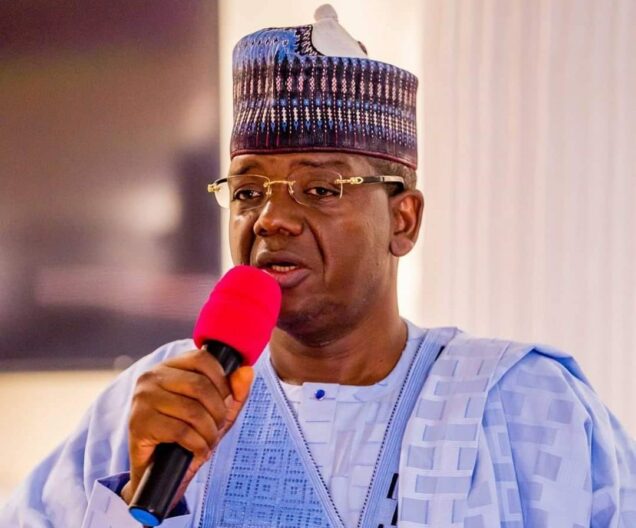Former governor turned Minister of State for Defence, Bello Matawalle, has warned that current security efforts in Zamfara State risk failing entirely unless he remains involved — accusing the state government of sidelining him.
In a recent interview monitored by DCL Hausa, Matawalle said that recent moves by Dauda Lawal, the governor of Zamfara, amounted to deliberate exclusion of his office from key security discussions. According to the minister, the governor met with the senior Defence Minister in Abuja, bypassing him — despite his presence in Abuja at the time. “Any security effort without me will amount to nothing,” he said firmly.
Matawalle, who served as Zamfara governor between 2019 and 2023 and now represents the state at the federal level, argued that his role is crucial. He described himself as the state’s main link to the federal Defence Ministry, implying that coordination without him lacks legitimacy and effectiveness.
Zamfara has endured weeks of repeated attacks by bandits — with many villages razed, homes abandoned, and families displaced. According to a civil-society report earlier this year, 164 people were abducted and 23 killed within a two-week period, while dozens of communities across at least eight local government areas came under attack. Many residents, too afraid to stay, have fled their farmlands, schools and homes.
Governor Lawal has pleaded for more local control of security agencies, describing the reliance on Abuja as a major obstacle. He has maintained that the state knows where bandits hide, and that he could wipe them out in two months — if only the state had operational command over security officers.
Lawal argues that federal oversight — combined with what he sees as bureaucratic delays — undermines swift responses on the ground. His comments echo widespread anger among communities that feel abandoned during repeated raids.
Matawalle’s latest public remarks deepen a widening rift between the federal and state arms of government in Zamfara. He accused some members of his own party in the state of colluding with the governor to sow division. He warned that patrons of “internal rifts” would soon be exposed.
The tension follows prolonged accusations from Governor Lawal and opposition politicians that Matawalle — during his time as governor — sponsored some of the very bandits now terrorising the state, allegedly giving them vehicles and protection. Matawalle has long denied these claims, challenging his accusers to produce evidence. In 2024, he even publicly swore by the Quran that he had no links with bandits.
Supporters of Matawalle — including the state chapter of the ruling All Progressives Congress (APC) — have defended him. They point to past efforts under his administration that combined “kinetic and non-kinetic” strategies to fight insecurity, and say the current crisis is not a matter of past mistakes but of political vendettas that distract from tackling real threats.
Analysts argue the politicisation of security in Zamfara risks undermining efforts to restore peace. While some of the Ministry of Defence’s operations in neighbouring north-west states have had成果, they say, the constant finger-pointing between federal and state actors — and the resultant breakdown in trust — only hurts the people.
For many residents, all the political wrangling matters little. Their farms lie fallow, children cannot attend school, and communities live in a perpetual state of fear. What they need is quick, effective action that restores safety, rebuilds trust, and ensures protection — not more blame games.
Observers say that if the state government truly believes it can operate security forces independently, then power must first be transferred — or effective collaboration established. But unless federal and state authorities find common ground, with mutual respect and clear roles, Zamfara’s security coordination may remain a hollow promise.
At this critical juncture, the stakes are high. For peace to return to Zamfara — and for lives to be saved — the corridors of power must yield to urgency, cooperation, and the immediate needs of ordinary citizens.

